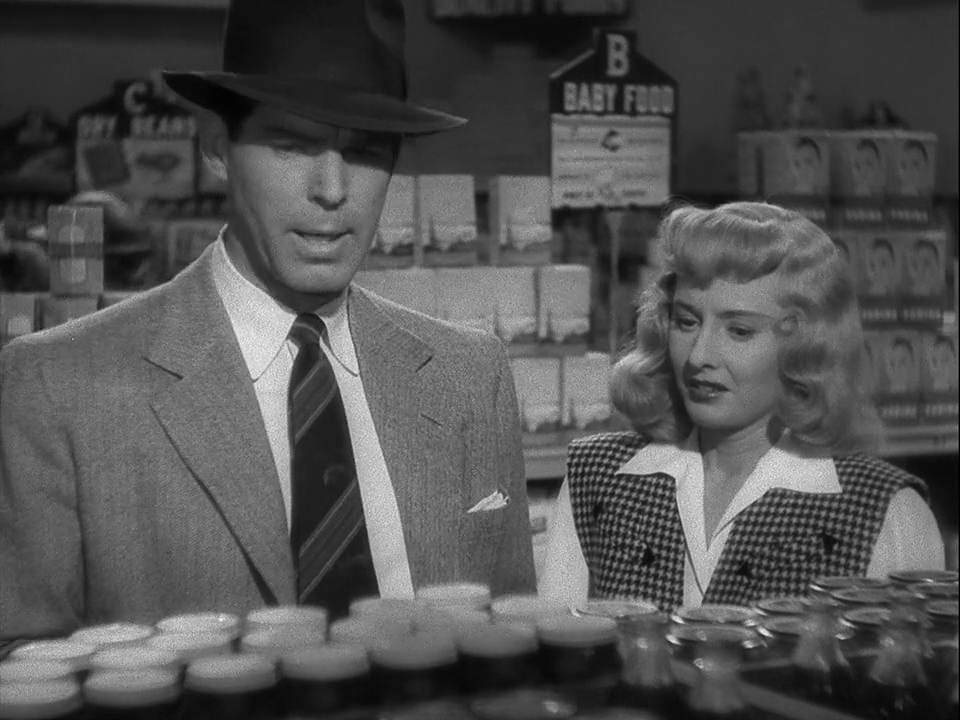A Century of Film is an ongoing series where Devin Wilger watches one movie from each year between 1917 and today. For the year of 1944, it’s Double Indemnity.
Voiceover narration has a bad rap, and I can’t really figure out why. Sure, there were plenty of “screenwriting gurus” that railed against it, parodied brilliantly in Adaptation, but there are too many examples of great narration out there that it seems foolish to just accept, at face value, that narration is inherently bad. Today’s film is one of those, because Double Indemnity is a film built around its narrator, and it’s a great example of how a good narrator can fundamentally change your experience.
We’re introduced to insurance salesman Walter Neff (Fred MacMurray) as he rushes to his office, bleeding from a gunshot wound (which isn’t immediately obvious but grows through the film), ready to make a confession to his boss Barton Keyes (Edward G. Robinson). He killed a man for money - and a woman - and he didn't get the money and he didn't get the woman. Pretty, isn't it?
That’s when we launch into the film itself, and knowing how this story ends has an undeniable effect - it makes every scene, every interaction, incredibly tense. Neff is a bit of a rube, and MacMurray is good at playing him as the horny idiot he winds up being. That’s perfect for Phyllis (Barbara Stanwyck), who has a husband she wants to get rid of and some insurance fraud to commit. Who better to help her with that than an insurance salesman who would prefer if she didn’t have a husband? He even tosses in the double indemnity clause that gives the film its title, extra cash if their victim dies on a train. So begins plans for the perfect murder, even if we already know that there is no such thing, and they’re already on a trolley car to the cemetery.
In some ways, the narration can help the film feel like a great film you’re watching the second time, details that might not stand out are highlighted because you know where they’re going to lead. Neff signs his own death warrant the second he gets obsessed with Phyllis’ anklet, for example. But there’s still tension because you don’t completely know how everything is going to go down, you just know it’s going to go badly. Along with Miklos Rosza’s score, it makes even the light scenes tense, because there’s always a chance that Neff is going to slip up, and this could be the moment where he does it.
Even without that tension it’s worth watching, because this has some amazing writing. Raymond Chandler and Billy Wilder didn’t get along great during the writing process, but whatever stress they had was worth it, because every line is pure gold. The speeding ticket exchange between Neff and Phyllis, the narration itself, Keyes’ raving about a ‘little man’ who helps him see when someone’s trying to pull a fast one on an insurance company, it’s great stuff. It’s fast paced, witty and immensely quotable. I could listen to these characters talk all day, a common thread through Wilder’s films, he had a rare gift for making words sing. There’s not a bad line here, and the best lines are easily some of my favorites ever uttered on screen. That the dialog still feels natural and doesn’t feel like a pair of writers showing off is a testament to their skill, and since Wilder’s films were frequently the best written movies in Hollywood at any given moment, that’s no accident.
Wilder also filmed like nobody else, with a habit of making his films just gorgeous enough to make an impact without ever getting too flashy. The look here - black and white, with light chopped up by venetian blinds - is the foundation for film noir. Everything is in dark rooms, nobody turns on the lights unless absolutely necessary, and even the baby food aisle of a grocery store is given an air of menace.
The other week, someone asked if there was one director, living or dead, I would want to work with, who would it be? The answer has to be Billy Wilder, and if you want to know why just watch Double Indemnity. The man who made that has to have been a genius, with a gift for the English language that few people have. It’s easy to make a film about a murder gone wrong, but it’s rare that someone can make one as good as this one.
Next up, it’s 1945, and time to ring The Bells of St. Mary’s.



.JPG;w=120;h=80;mode=crop)